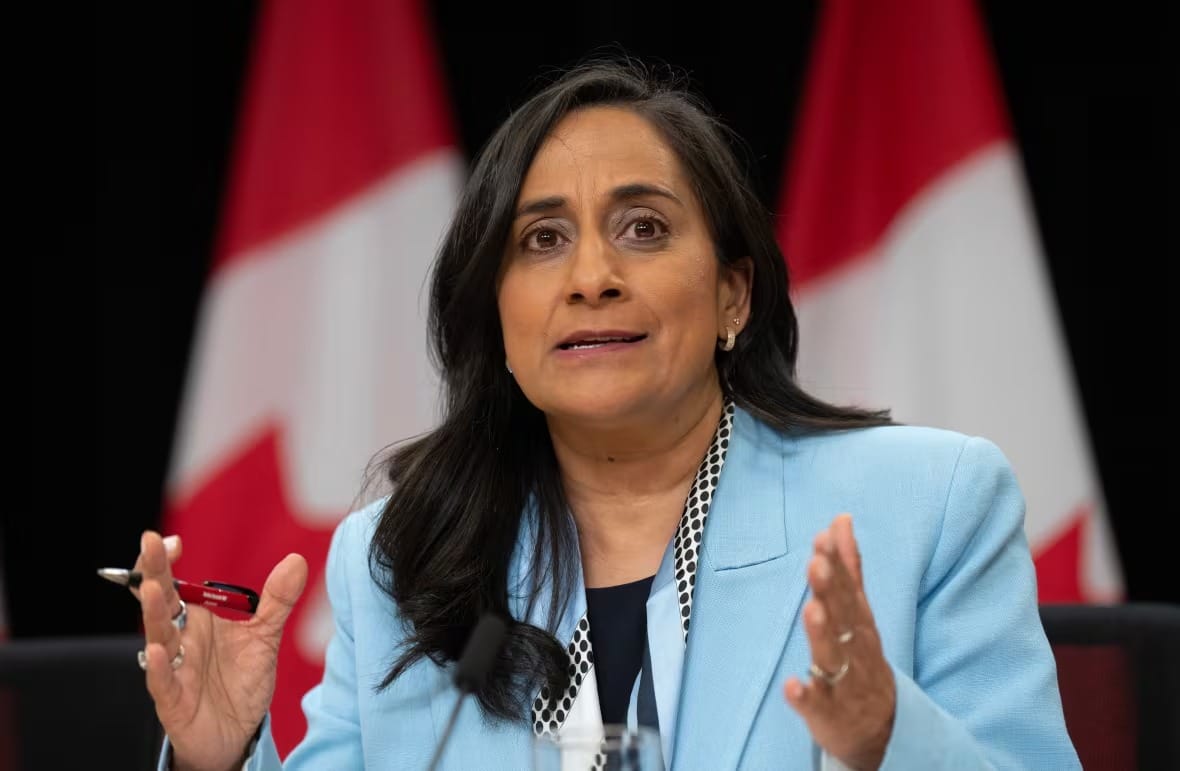Government concerned about public scrutiny in mandating workers back to office
Treasury Board says 3-day-a-week mandate still offers flexibility

Federal officials raised concerns about "public scrutiny" when mandating a return to the office for government workers, despite employees reporting they were more productive working remotely, documents reveal.
The documents, prepared by the Treasury Board Secretariat (TBS) before the return-to-office announcements, were obtained by the Public Service Alliance of Canada (PSAC) through an access to information request and shared with CBC News. They highlight how TBS analyzed global trends and public trust concerns while having limited internal data on productivity when deciding to bring workers back to the office.
PSAC argues that the documents show a lack of justification for the mandate. "They had an opportunity here to modernize the public service, but instead, it's about 'butts in seats' rather than improving services for Canadians," said PSAC President Sharon DeSousa.
Evolving Options
Almost a year before the three-day-a-week mandate was announced, a slide deck recommended a "flexible first" approach, allowing those capable of working remotely to do so without set office requirements. This option was seen as beneficial for productivity, increasing talent diversity, and reducing the government’s office and environmental footprint. However, it was also noted that this could cause disruption for management and be met with negative public scrutiny.
As the April 2024 decision on the mandate approached, "flexible first" was no longer considered. Officials instead weighed maintaining a two- to three-day-a-week mandate with some flexibility, having executives return three days a week, or implementing a three-day mandate for all workers, which was ultimately chosen despite being flagged as the most disruptive. Executives, however, were required to be in the office four days a week.
"It seems like politics got in the way," said DeSousa. "The evidence doesn’t support this mandate."
Gaps in Evidence on Hybrid Work
An October 2023 update on the government’s first hybrid work mandate acknowledged "enterprise-wide evidence gaps" regarding how hybrid work was functioning for teams and employees across departments. By fall 2023, 81% of departments required at least two days a week in the office, and 64% reported that 60% of employees were complying. However, 28% of departments did not provide comparable data.
PSAC believes that compliance issues should have been addressed individually rather than imposing a blanket three-day mandate. DeSousa emphasized, "If there are issues, deal with them. Don't impose a broad mandate."
Managers also reported challenges with the return-to-office policy, including managing changes, lack of workspace, and unassigned seating.
The Productivity Debate
The documents summarize external research on hybrid and remote work in public and private sectors. The findings suggest that productivity is subjective, with managers and employees viewing hybrid work differently. Although hybrid environments did not show a loss in productivity, there was no definitive evidence of significant gains for employers.
A 2023 survey of 1,320 federal employees indicated strong support for remote work, with better productivity being the top-cited benefit. Twenty-eight percent of respondents reported no downsides to remote work for themselves, their teams, or their organizations.
While the October 2023 update on the return to office did not directly mention productivity, it noted that hybrid work adoption was slow, coinciding with delays in service delivery for Canadians.
TBS Response and Concerns About Losing Talent
TBS defended the return-to-office policy, stating that it was designed to build stronger teams, improve service delivery, and reinforce public trust. "Aligning with national and global trends strengthens public service credibility and supports recruitment efforts," it said in a statement.
TBS also announced a working group to examine public service productivity and remove regulatory barriers. The group’s membership and mandate are still under development.
The documents also highlighted recruitment and retention challenges in departments with less remote work flexibility. A report from the C.D. Howe Institute found little difference between remote work opportunities in the public and private sectors for similar jobs. However, economist Tammy Schirle of Wilfrid Laurier University expressed concern that rigid office mandates could push federal employees to seek more flexible positions outside the public service. "That’s where we risk losing our best public servants," Schirle warned.





